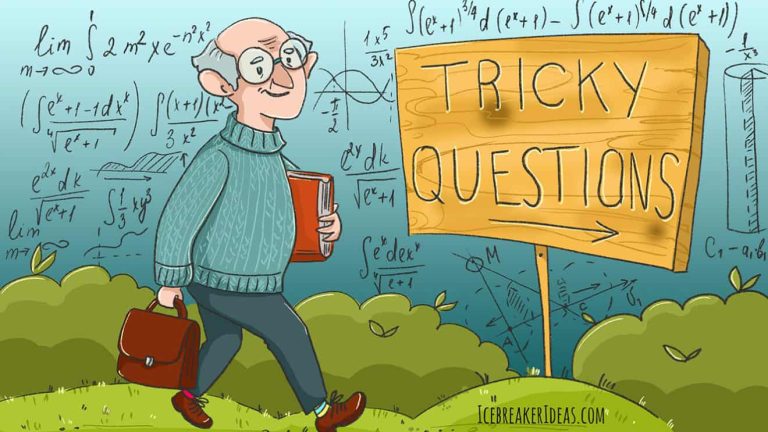Why do dogs sleep more in January than in February?
Seems like a random fun fact… until you realize it’s a trap.
Welcome to the world of trick questions — riddles designed not just to test your knowledge, but to challenge how you think. They blur the line between logic, language, and play, turning everyday facts into clever mental puzzles.
Inspired by Spanish author and mathematician Carlo Frabetti, today we dive into a few delightful — and deceiving — examples. But first, let’s decode the one about dogs.
🐶 So, Why Do Dogs Sleep More in January?
Here’s the question:
Why do most dogs sleep more in January than in February?
You might be tempted to blame winter weather or post-holiday fatigue. But the real answer is simple:
Because January has more days.
That’s it. With 31 days compared to February’s 28 (or 29 in leap years), there’s just more time in January for dogs — or anyone — to sleep. It’s a reminder that sometimes, the most obvious explanation is hidden in plain sight.
🧠 The Purpose Behind Trick Questions
Why do we love questions like this?
Because they:
- Challenge our assumptions
- Reveal cognitive biases
- Train us to slow down and read carefully
- Show how language shapes thought
They’re not just jokes — they’re exercises in critical thinking and creative reasoning. Let’s explore more examples.
🤯 6 Trick Questions to Bend Your Brain
1. In four consecutive years, how many months have 31 days, how many have 30, and how many have 28?
You might start listing leap years or checking a calendar, but the answer is:
- 31 days: Always 7 months
- 30 days: Always 4 months
- 28 days: All months have at least 28 days!
The trick? You forgot the question didn’t say “only 28 days.”
2. Is a question always redundant if you already know the only possible answer?
Not necessarily. Even if the answer seems obvious, the question might:
- Test your confidence
- Serve a rhetorical purpose
- Highlight irony
So no — such questions aren’t always superfluous.
3. What was the tallest mountain in the world before Everest was discovered?
It was still Mount Everest — we just didn’t know it yet. Discovery doesn’t change reality; it changes awareness.
4. Which animal hunts mice, meows, and scratches, but isn’t a cat?
A robot cat, a human pretending to be a cat, or — more playfully — the answer could be:
“A riddle.” It does all those things metaphorically!
Or, if you like wordplay: “A trick question.” Because it behaves like a cat but breaks expectations.
5. What happens when an irresistible force meets an immovable object?
This classic paradox has puzzled thinkers for centuries. The logical answer? They can’t both exist.
If a force is truly irresistible, no object can be immovable. And vice versa. It’s a contradiction — a thought experiment, not a physical possibility.
(And yes, comic fans may recall Superman grappling with this dilemma in time-travel showdowns.)
⚖️ Trick Questions in Law and Math
Frabetti also touches on an intriguing connection between justice and mathematics, especially through the work of 19th-century French mathematician Siméon-Denis Poisson. Poisson attempted to use probability theory to estimate how often court verdicts might be incorrect — long before the age of forensic science or big data.
This cross between mathematical modeling and human judgment was radical at the time and wasn’t warmly received. But it laid the groundwork for applying statistics in unexpected fields — from jury decisions to financial markets.
Today, Poisson’s legacy lives on in concepts like the Poisson distribution, widely used in data science, epidemiology, and risk assessment.
🎭 The Value of Being Fooled
Trick questions don’t just make us laugh or groan — they remind us how fallible we are, how much we rely on assumptions, and how easy it is to rush to conclusions.
In a world filled with misinformation, ambiguity, and overconfidence, they teach us to:
- Read carefully
- Think slowly
- Stay curious
And above all — to enjoy the game of thought.
So next time someone asks you why dogs sleep more in January, smile — and ask them how many months have 28 days.
You might just learn something about how they think.





